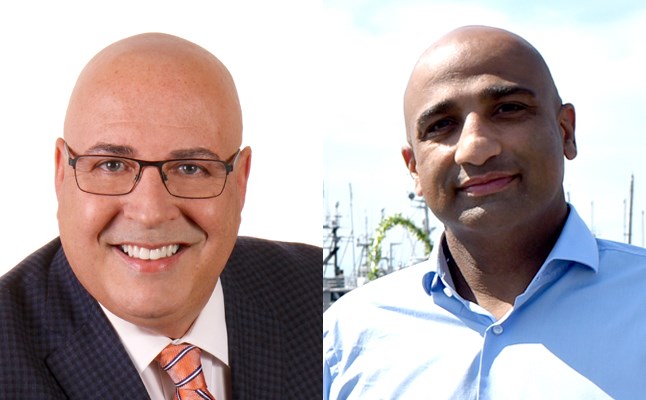Two Steveston-Richmond East candidates want to see far-reaching policies to guarantee food security and allow Richmondites to buy local.
But Jack Trovato, who is running for the NDP, said the over-arching problem that needs to be addressed first – to guarantee local food production - is the climate crisis.
He pointed out this crisis is no surprise, something that has been talked about for years, and now the evidence can be seen by way of forest fires in B.C. and drought and desertification in California.
“We can talk about food security… if we don’t address the climate emergency, all of this is null and void,” Trovato said.
The federal government has set emissions reduction targets for 2050, and while Trovato said that’s a step in the right direction, it’s still to far off.
“We’re staring in the face of this crisis,” he added.
Trovato would like to see a national food policy with labelling and traceability, “to make our food systems stronger.”
'No farmer, no food'
Liberal candidate Parm Bains, on the other hand, said he would like to see the federal government work with municipalities to encourage higher production on farms.
“We all need to embrace the phrase ‘no farmer, no food,’” Bains said.
One example he’d like to see take off is a land-matching program that pairs up farmland owners whose land isn’t under production with those farmers who don’t own their own land.
Producing more food locally would cut back on transportation and distribution costs, Bains said.
He pointed out there are a lot of Agricultural Land Reserve (ALR) properties in Richmond that aren’t currently being farmed and suggested a registry could be created for land-matching.
“We need to really be putting a real plan in place where we can match local agrarians and future farmers and future generations of farmers,” Bains said.
Another challenge is for “legacy farmers” to find the next generation to take over Richmond farms, he added.
Much of Richmond’s farmland has been over-run by mega mansions – large homes up to 15,000 square feet in size that have extensive landscaping - driving up land prices and paving over fields.
Trovato collected a petition about five years ago to protest these homes, knocking on doors for more than a year.
In 2018, Richmond city council finally limited the size of homes in the ALR to about 4,300 square feet.
While Trovato said “there’s no going back” to reclaim this land, the focus has to be on remaining vigilant and supporting young farmers and older farmers with succession planning.
One farm in east Richmond, on No. 8 Road, was sold to the Port of Vancouver for future use. Because the port is under federal jurisdiction, it doesn’t necessarily fall under provincial ALR rules.
This is where Trovato said the federal government needs to bring in its authority and not allow the industrialization of this 200-acre farm.
Less red tape needed
Steveston-Richmond East Conservative candidate Kenny Chiu, running for re-election, would like to see red tape reduced to allow farmers to be more productive, for example, to expand greenhouses.
This would allow more food to be grown year round in Canada.
But Chiu pointed out, policies like carbon taxes are hitting farmers and driving up the cost of local food, for example, when drying grain after harvesting, the cost of energy is higher with the tax.
“We’re not talking about a high-flying lifestyle, we’re talking about basic necessities,” he said.
Chiu would like to see Canada become more self-sufficient and self-reliant in food production.
“Richmond is part of that solution,” Chiu said. “The ALR is a good idea, but having agricultural land just sitting there and not engaged in production is not helping.”
The ALR shouldn’t just be a “reserve,” he added, rather farmers need incentives to be productive and this means getting municipalities, the province and the federal government to collaborate.



